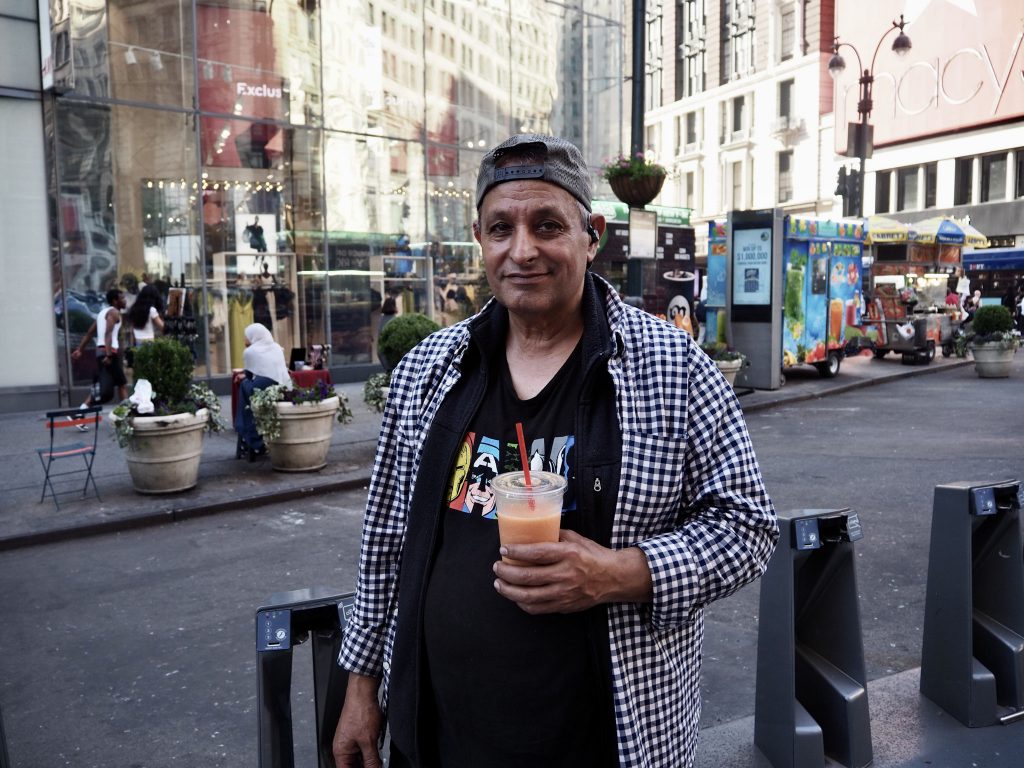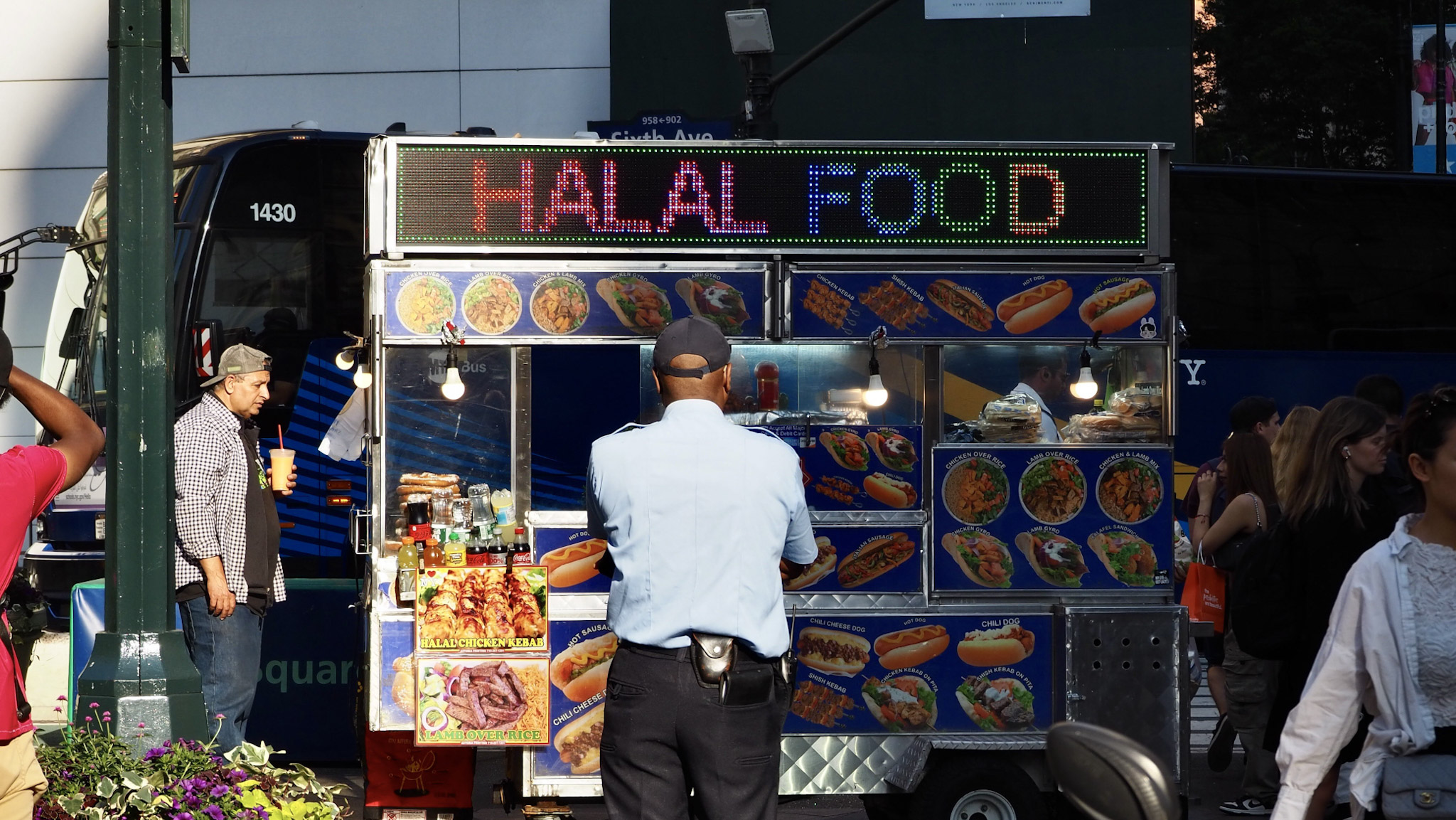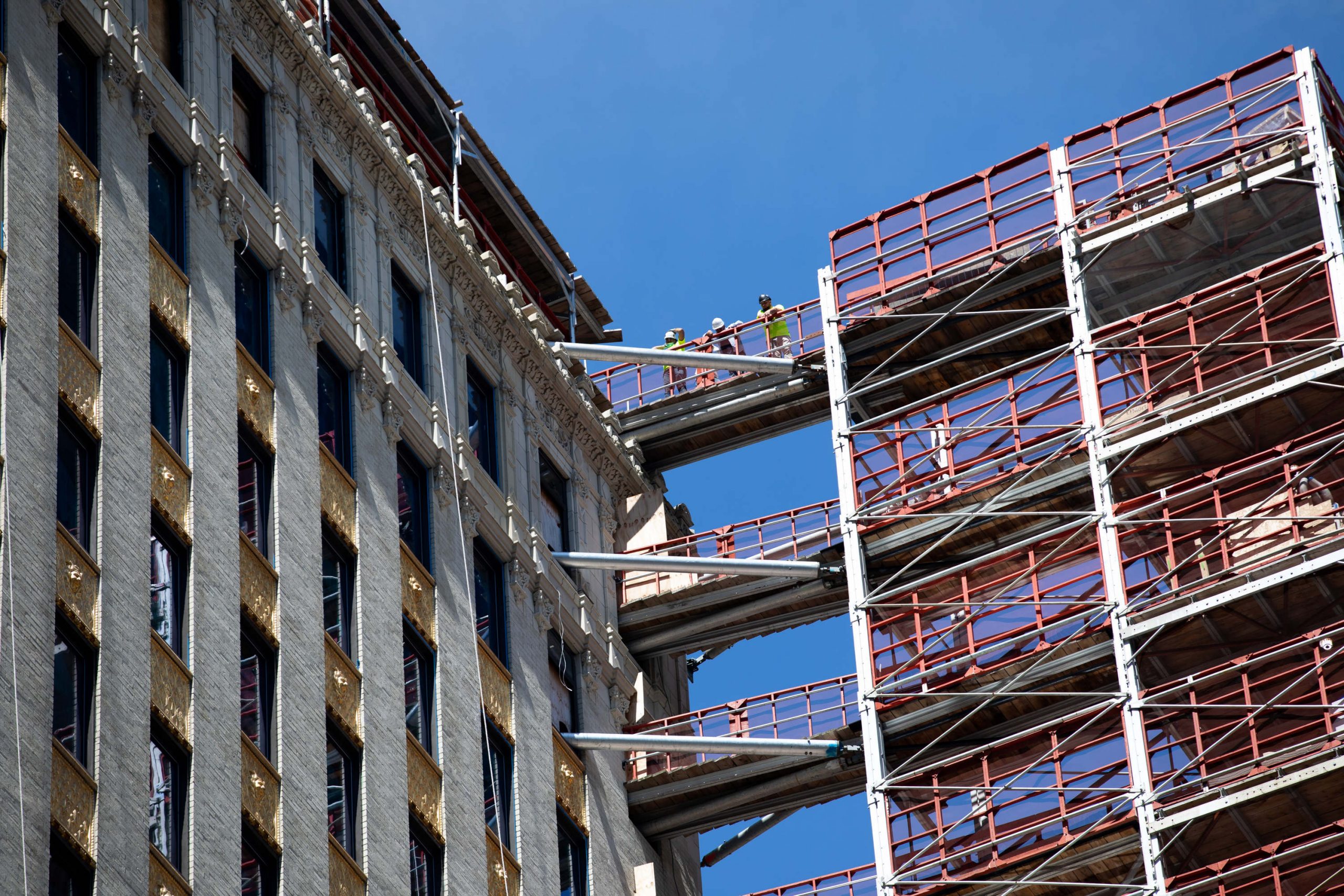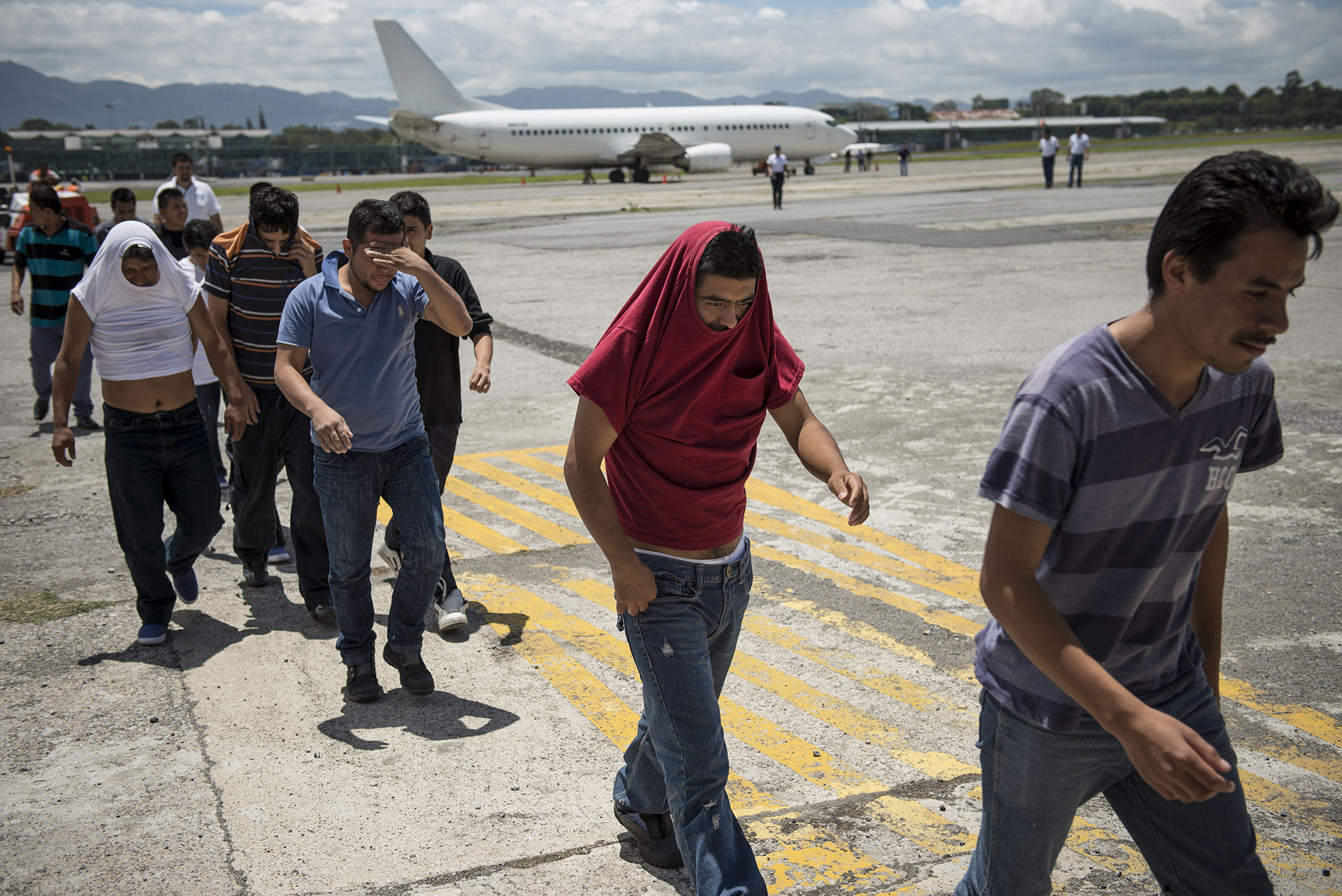Street vendors like Mohamed Ahmed have to contend with New York City’s byzantine rules related to their trade. Many regularly defend themselves before the officers of New York City Office of Administrative Trials and Hearings (OATH) where they try to argue their way out of fines issued by the NYPD and the Department of Sanitation. To vendors like Ahmed, who grills chicken and other food on 34th Street, NYPD and DOS officers are a familiar sight and the cost of doing business. Ahmed has a drawer in his street cart full of tickets.
Also Read: An Outdated System Is Preventing Street Vendors From Getting Permits
But for Ahmed and the other street vendors of 34th Street, they have a new ticketing agency to contend with: the 34th Street Partnership.
Private security guards hired by the 34th Street Partnership and deputized by the NYPD have been issuing a barrage of tickets to vendors for violations, like Herald Square’s no vending rule, which restricts vending between the peak hours of 8 a.m. and 7 p.m. These summons are adjudicated through OATH and can become official New York City fines. It is a rare instance of private industry enforcing public regulations which is enabled by an obscure law that paves the way for more financial interests to issue fines. The stakes for vendors are high: those who don’t pay their tickets can potentially lose their licenses.
Ahmed has been vending in Herald Square for over four years. He said that only in the last few months have he and the other Egyptian vendors that occupy all four corners around 34th Street been receiving tickets directly from 34th Street Partnership security.
“Every day they give us a headache,” said Ahmed. “What can we do?”
Two weeks ago, Documented witnessed a 34th Street Partnership security guard force three street vendors to move to another location. Two vendors who declined to be identified said that they were threatened with a ticket if they didn’t move.
Some of the vendors expressed a belief that the tickets were not legitimate because none of the summonses they were issued ever listed the amount of the fine. Ahmed says when a security guard approaches him and tries to get him to move from his location, he mostly ignores them.
“I wait until they call the police,” said Ahmed. “When they call the police, then I listen.”
The 34th Street Partnership, which was first formed in 1989, is a not-for-profit, private management company known as a business improvement district (BID). The 34th Street Partnership board is comprised of a collection of developers, land owners, and business interests that exert a tremendous amount of influence on public space. They share a management team and security with the Bryant Park Corporation, another BID just a short subway ride away and both BID’s security is overseen by Kevin Ward, the former Chief of Staff of former NYPD Commissioner William Bratton.
According to Matthew Shapiro, Legal Director for the Street Vendor Project, the issuing of tickets by the 34th Street Partnership is unprecedented.
“It’s kind of crazy to me because the city agencies are the ones that issue these tickets, not private organizations,” he said.
After several vendors reached out to Street Vendor Project for help, Shapiro contacted the Office of Administrative Trials and Hearings (OATH), the city agency that handles civil violations. They had no records of the tickets ever being issued.
“I confirmed with OATH that they are not going to have hearings for these tickets, they’ve never seen this before either,” he said. “So we are a little bit confused about what’s going on and very concerned because we don’t have private enforcement in this city.”
Responding to Documented’s request for comment, OATH confirmed that some of the summonses issued by the 34th Street Partnership were not filed with them on time so they were effectively dismissed as they did not make it into the OATH case tracking system. They did however confirm that they have seen tickets issued by the 34th Street Partnership and that they would hold hearings on those summonses as long as they were filed with the agency in a timely fashion.
Although they normally hold hearings on summonses issued by NYC enforcement agencies, OATH said that due to the city law, the 34th Street Partnership security have been designated “Special Patrolmen” which empowers them to issue civil summonses.
Because of a little-known rule in the New York City Administrative Code, the NYPD police commissioner may appoint Special Patrolmen status to those who apply and demonstrate a need for such an appointment. Employees of financial institutions, business entities, or anyone deemed appropriate by the police commissioner could be given the status and given limited peace officer powers. Those powers include issuing summonses, making arrests, and controlling crowds.
Still, OATH’s Deputy Commissioner of Public Affairs, Marisa L. Senigo, stated that this was the first time they have seen this designation granted to a business improvement district.
“I do not know of any other summonses received by OATH from special patrolmen currently employed by other BIDs,” she said.
The NYPD did not respond to Documented’s request for comment. The 34th Street Partnership did confirm that they have been authorized peace officer agency along with its security guards and stated that they have received the required peace officer training by The New York State Department of Criminal Justices Services. They did not state when they were certified as peace officers.

As a response to the decline in public investment, BIDs were first formed in New York during the 1960s and 70s by local merchants and property owners. Across the city, there are 75 active BIDs. In addition to offering supplemental services such as street cleaning, BIDs effectively privatize public space. Although BIDs can help revitalize struggling commercial corridors, they often lead to the displacement of low-income residents and small businesses. Many BIDs have also been hostile to street vendors, seeing them as both a blight on the community as well as direct competition with local business owners. The 34th Street Partnership is no exception.
In 2019, the vendors claimed that the 34th Street Partnership was strategically placing benches, bicycle racks, potted plants, and trash cans along the sidewalks as a way to block the vendors from operating. For their part, 34th Street Partnership has not shied away from their public disdain for the vendors.
“Ask any business owner. They all hate the vendors” Daniel Biederman, the 34th Street Partnership’s President said in a 2019 interview with the Wall Street Journal.
Yet, the issuing of tickets is an entirely new tactic that could have wide-ranging repercussions across the city in terms of private policing of public space.
“The BIDs can’t enforce the law, they are just a private organization,” said Shapiro. “That would be like me going down the street and telling someone not to jaywalk.”
Update: This article was amended on June 14 to clarify how vendors argue their tickets and the summons process.














